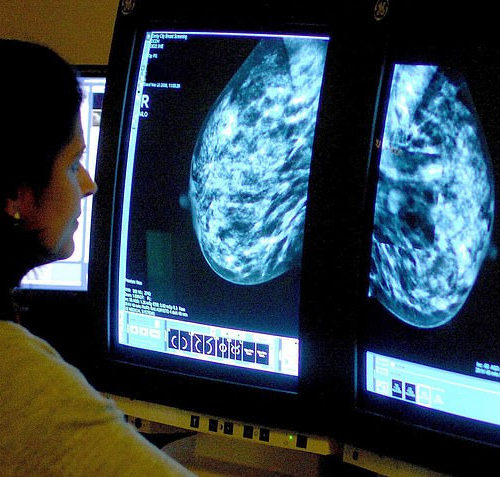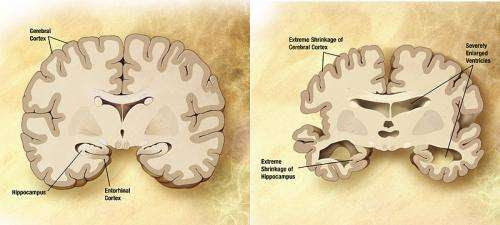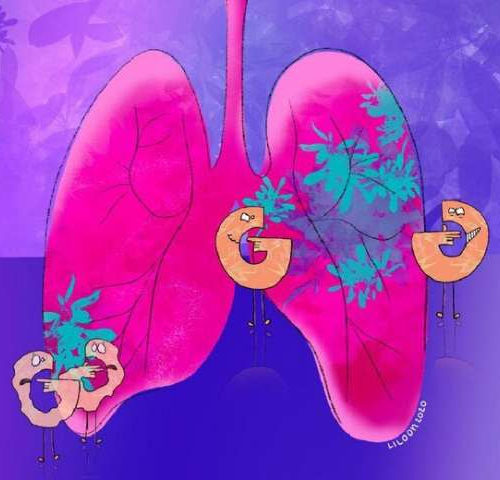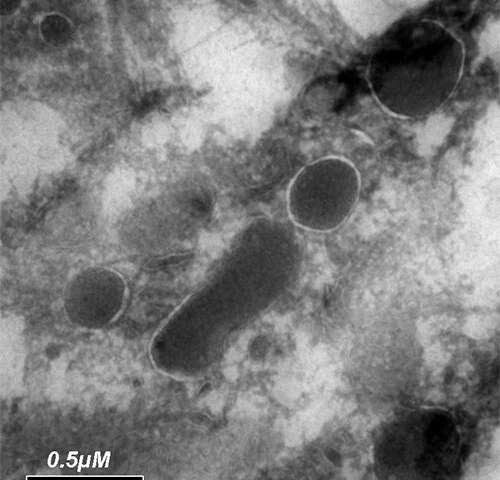Editor’s note: Find the latest COVID-19 news and guidance in Medscape’s Coronavirus Resource Center. As more jurisdictions mandate facial coverings in public, questions have arisen about whether it’s safe for everyone — including those with lung disease — to wear masks. Stories about people who claim to be unable to wear masks because of breathing...
Tag: <span>Lung cancer</span>
Cancer vaccine hope: Personalised treatment designed to boost the body’s natural ability to fight the disease shows ‘promising signs’ in clinical trials
By RYAN MORRISON FOR MAILONLINE Researchers take a biopsy of a cancerous tumour to look for certain proteins Each patient has a ‘different cancer’ and the treatment is specifically targeted It is given alongside chemotherapy drugs to boost the body’s immune response So far only eight per cent of patients saw their tumour reduce but...
Different ‘subtypes’ of Alzheimer’s may be linked to different modifications of the tau protein
by Massachusetts General Hospital A new study reveals a possible biological reason that Alzheimer’s Disease (AD) progresses at different rates in different patients. The study, which was led by Massachusetts General Hospital researchers, focused on tau, a protein found in the neurofibrillary tangles in the brain that are a well-known sign of AD. Tau can...
Blocking sugar metabolism slows lung tumor growth
by Emily Packer, Ecole Polytechnique Federale de Lausanne Blocking a pair of sugar-transporting proteins may be a useful treatment approach for lung cancer, suggests a new study in mice and human cells published today in eLife. Cancer cells use a lot of sugar to fuel their rapid growth and spread. This has led scientists to...
Scientists discover that nicotine promotes spread of lung cancer to the brain
WINSTON-SALEM, N.C. – June 4, 2020 – Among people who have the most common type of lung cancer, up to 40% develop metastatic brain tumors, with an average survival time of less than six months. But why non-small-cell lung cancer so often spreads to the brain has been poorly understood. Now scientists at Wake Forest...
Continued nicotine use promotes brain tumors in lung cancer patients, study suggests
by Rockefeller University Press Researchers at Wake Forest School of Medicine have discovered that nicotine promotes the spread of lung cancer cells into the brain, where they can form deadly metastatic tumors. The study, which will be published June 4 in the Journal of Experimental Medicine (JEM), suggests that nicotine replacement therapies may not be...
The skinny on why poor sleep may increase heart risk in women
NEW YORK, NY (Feb. 17, 2020)–Women who sleep poorly tend to overeat and consume a lower-quality diet, according to a new study from researchers at Columbia University Irving Medical Center. The findings provide new insight into how poor sleep quality can increase the risk of heart disease and obesity and points to possible interventions for...
Cells inside cells: the bacteria that live in cancer cells
by Weizmann Institute of Science Cancer cells are comfy havens for bacteria. That conclusion arises from a rigorous study of over 1,000 tumor samples of different human cancers. The study, headed by researchers at the Weizmann Institute of Science, found bacteria living inside the cells of all the cancer types—from brain to bone to breast...
Combined drug treatment for lung cancer and secondary tumors
by Kanazawa University Researchers at Kanazawa University report in the Journal of Thoracic Oncology a promising novel approach for a combined treatment of the most common type of lung cancer and associated secondary cancers in the central nervous system. The approach lies in combining two cancer drugs, with one compensating for a resistance side effect...
Scientists discover new drugs with potential to treat stubborn cancers
by Katie Willis, University of Alberta Credit: CC0 Public Domain Researchers at the University of Alberta have discovered a new class of drugs with the potential to make cancer treatment safer and more effective by preventing cancer cells from repairing themselves. “For patients with resistant cancer, these drugs could rescue them by rendering their cancer once again...






